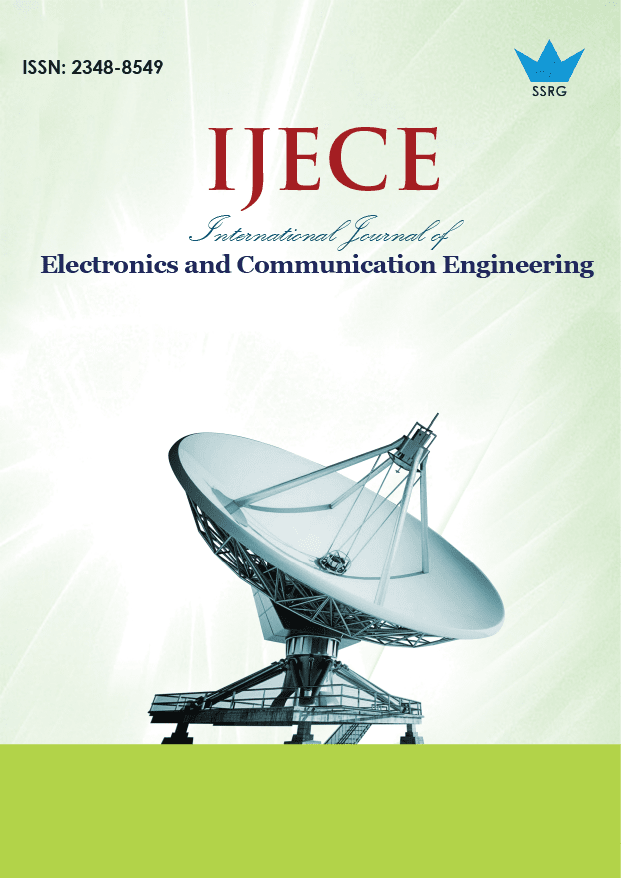Time Travel – Paradoxes & Solutions (A Never-Ending Debate)

| International Journal of Electronics and Communication Engineering |
| © 2022 by SSRG - IJECE Journal |
| Volume 9 Issue 11 |
| Year of Publication : 2022 |
| Authors : Tumula Mani Kota Rajasekhar |
How to Cite?
Tumula Mani Kota Rajasekhar, "Time Travel – Paradoxes & Solutions (A Never-Ending Debate)," SSRG International Journal of Electronics and Communication Engineering, vol. 9, no. 11, pp. 17-22, 2022. Crossref, https://doi.org/10.14445/23488549/IJECE-V9I11P103
Abstract:
Science is a highly complex thing; it doesn't have any boundaries or limits. Every time a question was answered, another new question arose from that solution. It is a never-ending process, an answer to a question will be a question to many upcoming answers, and that is how science develops. According to the general English definition, science is the pursuit and application of knowledge and understanding of the natural and social world following a systematic methodology based on evidence. So, it is not defined or limited and is ever-growing and ever-expanding. There may be many questions that science cannot answer, but they will definitely be answered someday. Some of such questions can even turn down entire human life. One of such great question is, "Can we travel through time?". For thousands of years, one of the greatest dreams of humankind has been "to know their future" or "to change their past". For both of these things to happen, there is only one way, and that is TIME TRAVEL, which is being considered a myth or an impossible event by many scientists. But some of the great scientists believed in time travel. They even proposed some theories and possibilities to travel through time. One such great scientist is Stephen Hawkins; he bought a new life to this topic by bringing some interesting phenomena like "Time Dilation" and "Time Bending" into the light. But these phenomena alone may not help us to achieve complete-time travel. But practically, there are some ways to achieve time travel. Some of these practical ways were clearly mentioned in my previous paper titled "Creating a Scientifical Way to Travel through Time", in which a highly successful way to achieve Time Travel is mentioned. But as mentioned initially, one answer is responsible for many questions. Similarly, many questions related to uncertainties, such as paradoxes, were raised after my solution got published. In this paper, I'll try to explain and answer some questions and propose exciting theories that may solve many questions.
Keywords:
Time travel, Paradox, Uncertainty, Science, Bootstrap, Universal limit, Hypothesis.
References:
[1] Tumula Mani Kota Rajasekhar, and Tumula Mani Harsha, “Creating a Scientifical Way to Travel through Time,” SSRG International Journal of Electronics and Communication Engineering, vol. 5, no. 11, 2018. Crossref, https://doi.org/10.14445/23488549/IJECE-V5I11P101
[2] Dr. Goutam Sarker, “On the Change in Entropy Due to Accretion and Collision of Black Holes,” SSRG International Journal of Applied Physics, vol. 8, no. 2, pp. 5-15, 2021. Crossref, https://doi.org/10.14445/23500301/IJAP-V8I2P102
[3] Swami Nityayogananda, “Vibration – The 5th Dimension To Redefine Spacetime Measurements,” SSRG International Journal of Applied Physics, vol. 6, no. 3, pp. 26-31, 2019. Crossref, https://doi.org/10.14445/23500301/IJAP-V6I3P105
[4] Mr.Vijay A. Kanade, “The Scientific Conceptualization of Time Dilation,” International Journal of Scientific & Engineering Research, vol. 5, no. 7, pp. 1087-1090, 2014.
[5] Dr. Goutam Sarker, “A Treatise on Astronomy and Space Science,” SSRG International Journal of Applied Physics, vol. 8, no. 2, pp. 47-58, 2021. Crossref, https://doi.org/10.14445/23500301/IJAP-V8I2P107
[6] Kiran Malleshappa, “Time Dilation,” International Journal of Scientific and Research Publications, vol. 4, no. 9, 2014.
[7] Chris Smeenk, and Christian Wüthrich, “Time Travel and Time Machines,” The Oxford Handbook of Philosophy of Time, pp. 577-630, 2009. Crossref, https://doi.org/10.1093/oxfordhb/9780199298204.003.0021
[8] Jim Al-Khalili, “Time Travel: Separating Sciencefact from Science Fiction,” Physics Education, vol. 38, no. 1, p. 14, 2002. Crossref, https://doi.org/10.1088/0031-9120/38/1/302
[9] S. Krasnikov, “The Time Travel Paradox,” Physical Review D: Particles and Fields, vol. 65, no. 6, 2001. Crossref, https://doi.org/10.1103/PhysRevD.65.064013
[10] David Lewis, “The Paradoxes of Time Travel,” From American Philosophical Quarterly, North American Philosophical Publications, pp. 145-152, 1976.
[11] Matthew S. Schwartz, “Paradox-Free Time Travel is Theoretically Possible, Researchers Say,” NPR, 2020.
[12] Nicolae Sfetcu, "Grandfather Paradox in Time Travel," SetThings, Multi Media Publishing, (ed.), 2019. Crossref, https://doi.org/10.13140/RG.2.2.31279.79521
[13] Nicolae Sfetcu, "Causal Loops in Time Travel," SetThings, Multi Media Publishing (ed.), 2019. Crossref, https://doi.org/10.13140/RG.2.2.17802.31680
[14] David Lewis, “The Paradoxes of Time Travel,” Philosophical Papers, vol. 2, pp. 67-80, 1987. Crossref, https://doi.org/10.1093/0195036468.003.0003
[15] Jacob Hauser, and Barak Shoshany, "Time Travel Paradoxes and Multiple Histories," Physical Review D, vol. 102, p. 064062, 2020. Crossref, https://doi.org/10.1103/PhysRevD.102.064062
[16] Rudradeep Goutam, "An Introduction to Time Travel," International Journal for Research in Applied Science & Engineering Technology, vol. 5, no. 7, pp. 2092-2099, 2017.
[17] "Time Travel," Stanford Encyclopedia of Philosophy, 2013.
[18] Meining Du, "The Theoretical Basis and Feasibility of Time Travel," Advances in Social Science, Education and Humanities Research, Proceedings of the 2021 International Conference on Social Development and Media Communication (SDMC 2021), vol. 631, Crossref, https://doi.org/10.2991/assehr.k.220105.048
[19] Bernard F Schutz, “Gravity from the Ground Up,” Cambridge University Press, p. 110, 2016.
[20] Davies P. C. W, "Thermodynamics of Black Holes," Reports on Progress in Physics, vol. 41, no. 8, pp. 1313–1355, 1978. Crossref, https://doi.org/10.1088/0034-4885/41/8/004
[21] Jeff Foust, "Juno Enters Orbit Around Jupiter," Space News, 2016.
[22] Bill Kurth, Research Scientist at the University of Iowa (TIME-DILATION).
[23] Olivier Darrigol, "The Genesis of the Theory of Relativity," Séminaire Poincaré, vol. 1, pp. 1–22, 2005. Crossref, https://doi.org/10.1007/3-7643- 7436-5_1
[24] V. P. Frolov, and A. Zelnikov, “Introduction to Black Hole Physics,” Oxford University Press, 2015.
[25] Stephen Hawking, “A Brief History of Time – From Big Bang to Black Holes,” Bantom Books, 1995.
[26] Nikolay Tikhonov, et al., “Searching for the Brightest Stars in Galaxies Outside the Local Group,” Research in Astronomy and Astrophysics, vol. 21, no. 4, p. 98, 2021. Crossref, https://doi.org/10.1088/1674-4527/21/4/98

 10.14445/23488549/IJECE-V9I11P103
10.14445/23488549/IJECE-V9I11P103